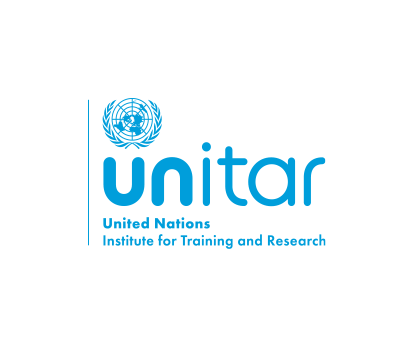
CIFAL York - Drone Pilot Microcredit Course
Use of drone in industry, government, non-governmental operations, education, research and training is growing. Understanding and ability to operate drones for such purposes is becoming an important skill that everyone can have in its skillset. This one day condensed course is ideal for those who want to acquire essential knowledge of Remotely Piloted Aircraft Systems (RPAS) or drone and get their basic RPAS certificate from Transport Canada and start using drone. The course covers required knowledge that basic certificate holders must have.
A microcredit certificate will be issued to all participants from CIFAL York upon completion of the course.
After taking this course participants will be able to:
-
Understand the Regulatory Framework
-
Identify RPAS Components
-
Understand Human Performance Limitations
-
Interpret Weather Information
-
Navigate Using Maps and Charts
-
Plan and Conduct Safe Flight Operations
-
Understand Aerodynamics
-
Effective Radio Communication
After taking this course participants will be able to:
-
Understand the Regulatory Framework
-
Identify RPAS Components
-
Understand Human Performance Limitations
-
Interpret Weather Information
-
Navigate Using Maps and Charts
-
Plan and Conduct Safe Flight Operations
-
Understand Aerodynamics
-
Effective Radio Communication
Air Law, Air Traffic Rules and Procedures
8:00-9:00
-
Introduction to the Canadian Aviation Regulations (CARs): Overview of CARs relevant to RPAS operations; Legal responsibilities of an RPAS pilot.
-
Air Traffic Rules: Flying in controlled vs. uncontrolled airspace; Understanding and interpreting NOTAMs
-
Flight Procedures: Communicating with air traffic control (ATC); Emergency procedures and incident reporting.
RPAS Airframes, Power Plants, Propulsion and Systems
9:00-10:00
-
RPAS Components: Main components: airframe, power plant, propulsion systems; Control systems and sensors.
-
Maintenance and Inspections: Routine maintenance procedures; Pre-flight and post-flight inspections for airworthiness.
Human Factors
10:30-11:30
-
Human Performance Limitations: Factors affecting human performance: fatigue, stress, situational awareness; Strategies to mitigate human factors’ impact on safety.
-
Decision Making: Effective decision-making skills; Recognizing and managing human errors.
Meteorology
11:30-12:30
-
Weather Information: Basic principles of meteorology for RPAS operations; Using weather
-
Weather Impacts on Flight: Effects of wind, precipitation, and temperature on RPAS performance; Contingency planning for adverse weather.
Navigation
1:30-2:30
-
Maps and Charts: Interpreting aviation maps and charts; Planning and executing flight routes using navigation tools.
-
Navigation Systems: Operation of GPS and other navigation systems; Navigating accurately with onboard systems.
Flight Operations
2:30-3:30
-
Safe Flight Planning: Developing compliant and safe flight plans; Conducting safe flight operations: takeoff, flight, and landing procedures.
-
Emergency Management: Identifying common emergencies and malfunctions; Implementing emergency procedures and recovery actions.
Theory of Flight
3:30-4:30
-
Aerodynamics: Basic principles of aerodynamics for RPAS; Lift, drag, thrust, and weight effects on flight
-
Flight Performance and Maneuvers: Performance characteristics in different conditions; Demonstrating basic flight maneuvers and control techniques.
Radiotelephony
4:30-5:30
-
Radio Communication Principles: Importance of radiotelephony in RPAS operations; Proper radio communication procedures and phraseology.
-
ATC Communication: Establishing and maintaining communication with ATC; Handling communication during normal and emergency situations.
Exam
The is an in person condensed course. Each topic will be covered in about one hour using easy to understand materials including video clips, PowerPoint slides, live demos. After each topic there will be a short quiz that covers the key concepts and prepares participants for the basic certificate exam.
Participants who successfully finish the course will be provided with a 2 hours practice session with mini drones.
Anyone (undergraduate, graduate students, staff, etc.) with interest in learning about and using RPAS (drone) in any particular field or industry can enroll in this course.

